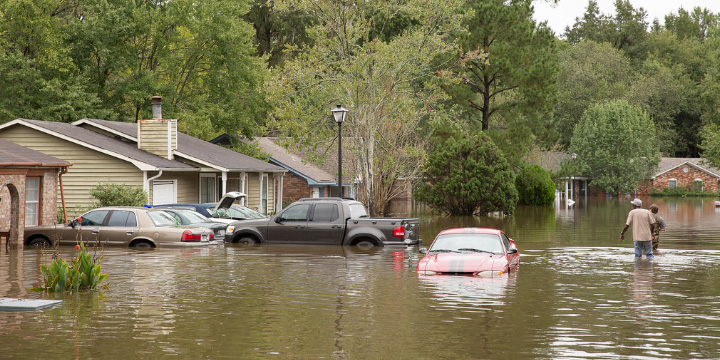Climate Change and Your Home

Have you ever wondered about the contentious topic of global warming? We're sure you've heard celebrities and politicians statingit as a lie or proclaiming it as 'the beginning of the end' for humanity. What is the truth? Is climate change real, and will it impact you and your home?
What is climate change?
To properly investigate the topic, we must first understand what climate change is. In the simplest terms, climate change is global warming — an increase in the global average temperatures of 2°C. The reason two degrees matters so much comes down to ice and carbon.
For South Africans, glaciers may seem irrelevant, but glaciers play an important role in keeping Earth cool enough to inhabit. Energy input and output regulates Earth's temperature. If the planet accumulates more energy than it releases, temperatures will rise. Our climate is sensitive to increases in carbon and our atmosphere in 2019 contains more carbon than before.
That means Earth is getting hotter and it's not good news. Science has proven that the drastic increase in carbon in the atmosphere caused by humans is unique to our time; it hasn't happened before. Carbon levels in the atmosphere and global temperature rises have never occurred this fast before.
Is climate change real?
How can climate change be real when there is frost on our grass and snow on the Drakensberg?
Scientists look at temperature spikes and dips over a span of years to determine the average and whether there has been an increase.
In recent years, temperature spikes and record highs have occurred twice as much as the lows, according to a study published in 2009 in the journal Geophysical Research Letters. "For climate change, it is the long-term trends that are important; measured over decades or more, and those long-term trends show that the globe is still, unfortunately, warming," says climate science blog Skeptical Science.
How does it impact me?
'It's real, so what does that mean for me? Will the world end soon?'
According to a study by the University of Chicago, more people today are convinced by climate change due to an increase in extreme weather. Climate change impacts more than having to buy an air conditioner for your home; it can also affect how much your morning coffee costs.
One of the greater impacts of climate change will be to your home insurance. Yes, that's right. Home insurance providers are looking for ways to mitigate costs and risks. If you stay in an area considered high risk for natural disasters like floods, earthquakes, hurricanes, cyclones, tsunamis, wind, hail, and even dry, hot weather that can increase the risk of fire, you might be paying higher insurance rates.
That means that climate change could also affect how much you pay for your home. Due to increasing natural disasters, people may be less willing to live in coastal areas or areas with higher risk. Finding the right insurance provider for your area and situation in this light becomes a lot more important.
According to the Department of Environmental Affairs, the biggest impact climate change is having on South Africa is that of our dwindling water supply and its consequential crop losses, water restrictions, and effects on water and food security. This means we can look beyond our home when considering climate change. Each of us can apply water-saving and carbon-reducing measures In our own lives.
Prices quoted are correct at the time of publishing this article. The information in this article is provided for informational purposes only and should not be construed as financial, legal, or medical advice.
Sources: Wharton University of Pennsylvania; Live Science; University of Chicago; Department of Environmental Affairs
Hippo Blog Categories

































